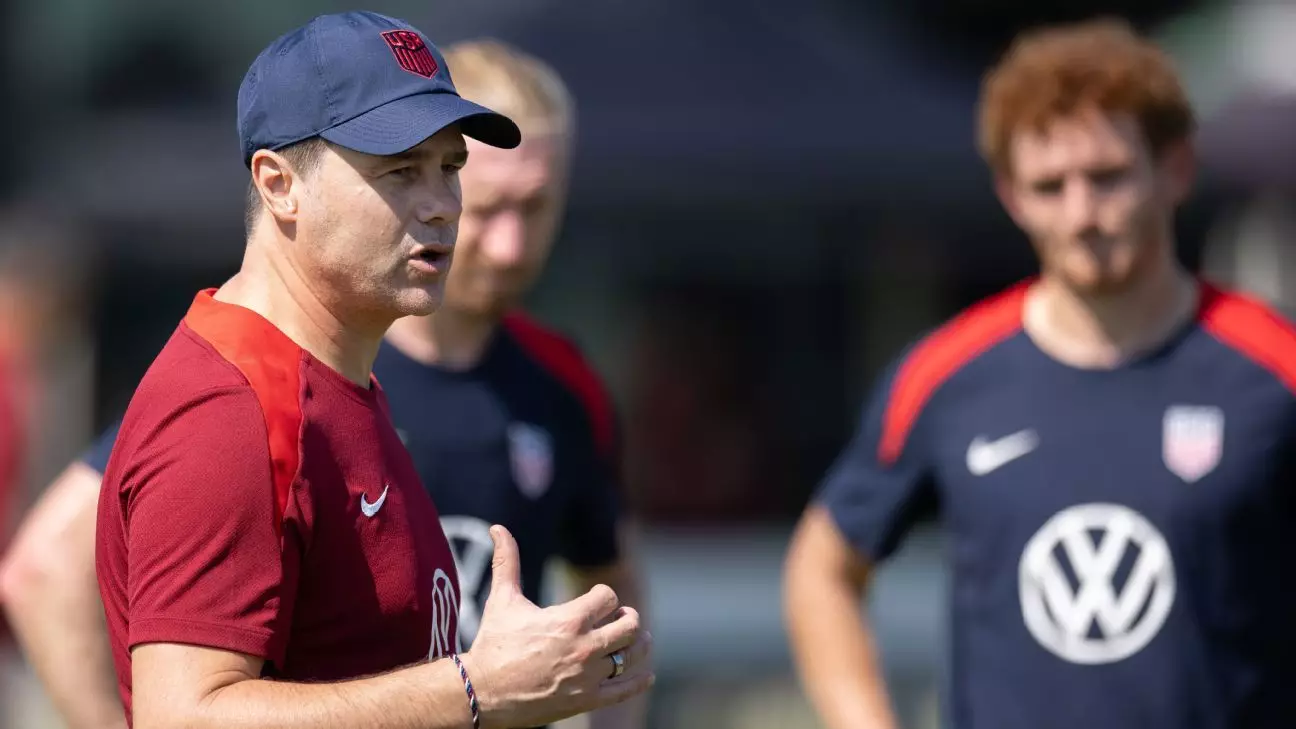In a striking declaration made just before the crucial second leg of the Concacaf Nations League quarterfinals against Jamaica, U.S. Men’s National Team (USMNT) manager Mauricio Pochettino emphasized the importance of Major League Soccer (MLS) as a breeding ground for national talent. His statement signifies a crucial shift; American players plying their trade in the domestic league are no longer viewed as secondary when it comes to international representation. This perspective aligns with the broader context of soccer development in the United States, highlighting Pochettino’s intent to cultivate a more inclusive and dynamic team environment.
Pochettino’s assertion that players in the MLS can compete on an equal footing with their counterparts in dominant European leagues like La Liga or the Premier League speaks volumes about the evolving landscape of American soccer. The manager keenly acknowledged the rigorous nature of the league, which is often dismissed by those outside of the U.S. as lacking in quality compared to Europe. His insistence that performance in MLS will be evaluated on the same criteria as international fixtures reflects a more comprehensive and nuanced understanding of the sport’s competitiveness across different leagues.
While addressing the media, Pochettino shared his philosophy on the weight assigned to various competitive scenarios, notably distinguishing between performance in official fixtures versus friendlies. His affirmation that he places greater significance on competitive outcomes resonates deeply within the competitive ethos of American sports culture—where winning is not only encouraged but expected. The Argentine manager articulated a vision where competition is not just a matter of fulfilling obligations but a pathway to instill a sense of accountability and ambition within the squad.
He asserted that setting higher expectations is essential for the growth of soccer in the U.S. By pushing players to embrace pressure and excel in high-stakes moments, Pochettino aims to create an environment where losing is simply not an acceptable outcome. This mindset fosters resilience and tenacity, qualities often associated with successful teams across various sports. It is a callable moment for U.S. soccer to evolve from a budding talent pool into a formidable force on the international stage.
As Pochettino steps into the managerial role, his vision and approach mark a significant cultural shift. With a history rooted in solid, competitive gameplay during his tenure at clubs like Tottenham Hotspur, Pochettino’s commitment to elevating the standards of the USMNT aligns directly with his track record. He is not just another coach; rather, he represents a conscientious effort to shape a new era of American soccer that acknowledges the potential existing within its borders.
The announcement of a January training camp, where players from the MLS will have an opportunity to display their skills, sends a powerful message: the door is wide open for all competitors. This new approach can potentially reinvigorate the spirit of MLS players, instilling not only hope but also motivation, as they recognize that their contributions could lead to national representation.
The Road Ahead
As the U.S. squares off against Jamaica in a decisive matchup with a precarious 1-0 lead, the focus remains not merely on the immediate outcome but on the broader implications for the future of American soccer. Pochettino’s insights hint at a collective aspiration to elevate the team’s performance, while he encourages a culture of preparedness among the players engaged in the challenge.
Ultimately, through his distinctive approach and keen eye for talent, Pochettino is positioning the USMNT and MLS at the forefront of the global soccer landscape. The potential for growth is vast, and with Pochettino’s visionary leadership, it appears that American soccer is poised not merely to participate but to compete earnestly on the world stage. His awakening call to push boundaries and embrace competitive fervor will undoubtedly resonate beyond the stadiums, leading to an enriched sports culture that champions excellence.


Leave a Reply